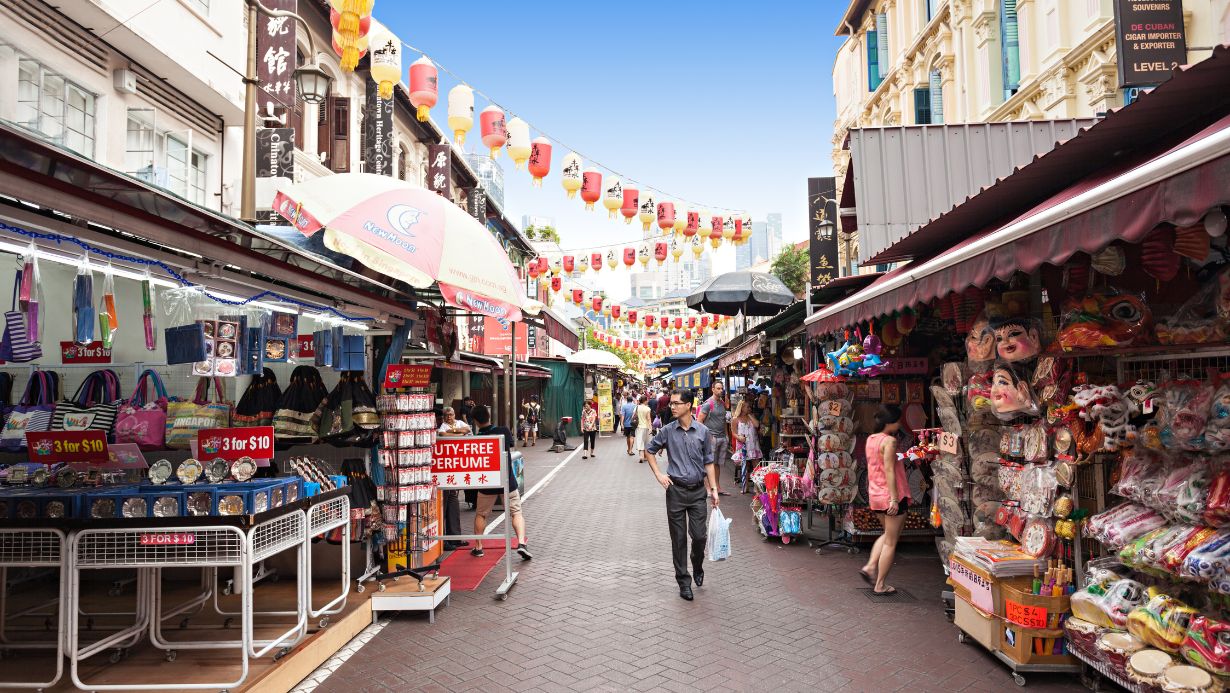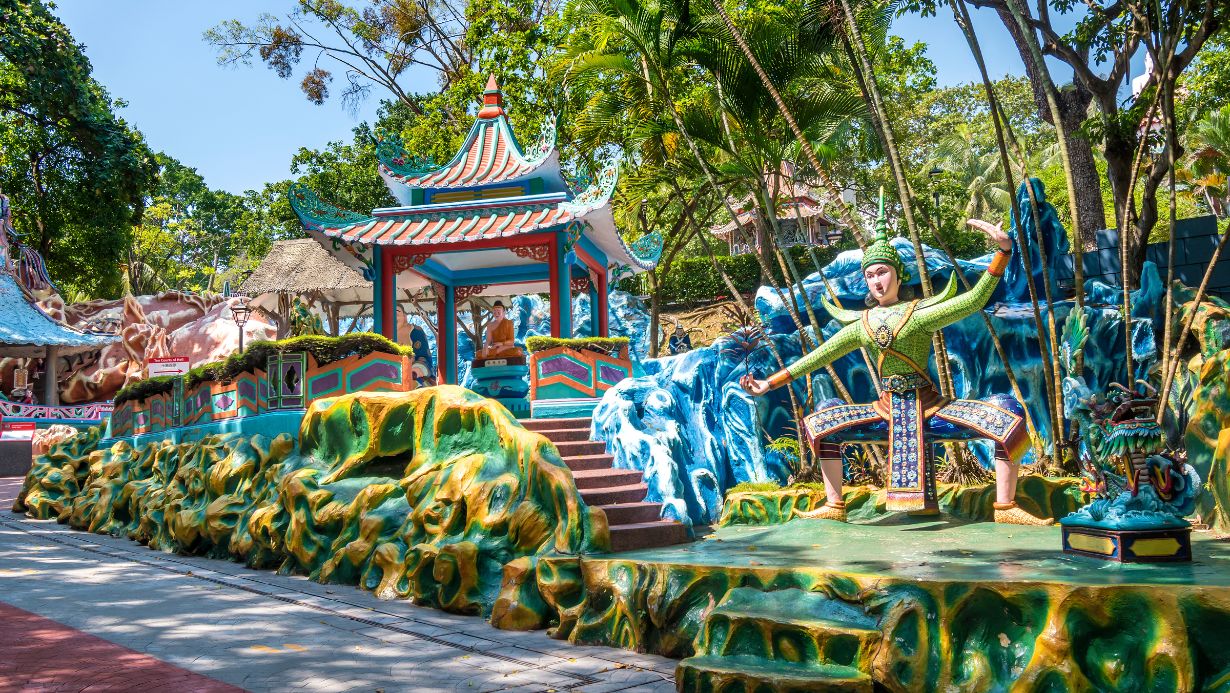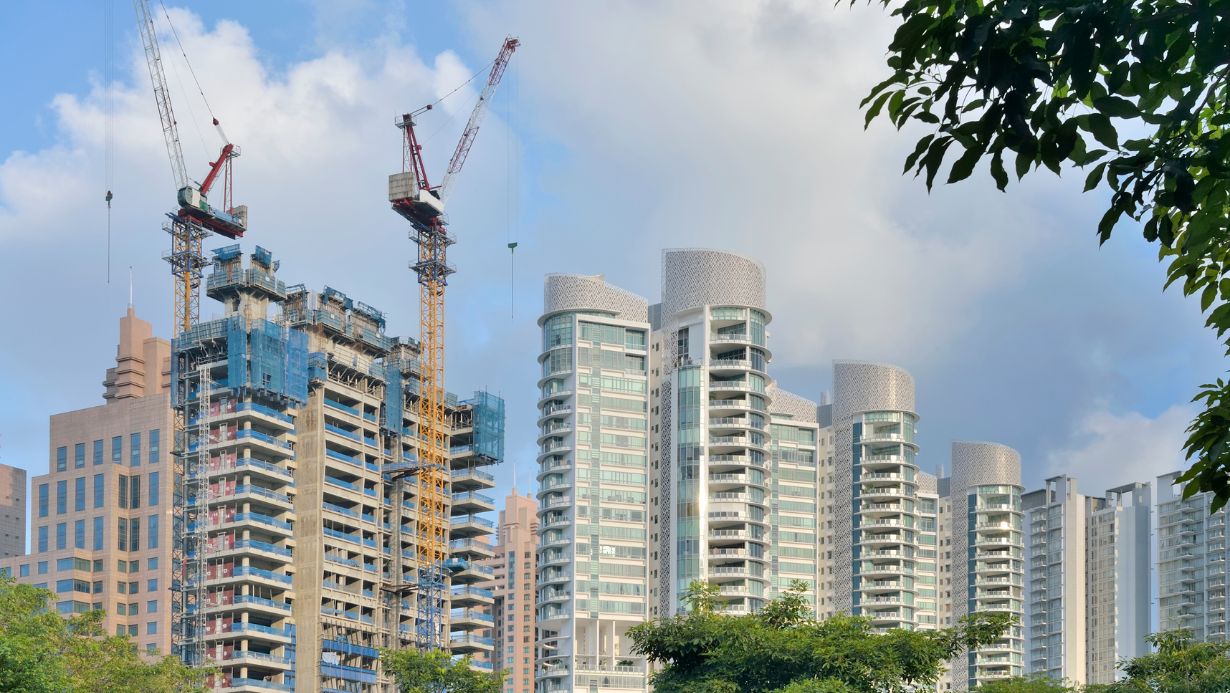9 Facts About Daily Life in Singapore
Many expats move to Singapore for the excellent career opportunities and high standard of living. The country offers a safe and culturally diverse experience that attracts a wide range of people. But what can you expect from daily life in Singapore?

1. You Can Do Something New Each Weekend
Singapore is a melting pot of different cultures. Many locals are either of Chinese, Malay, or Indian origin. Each group brings with it its own festivals, cultural establishments, and entertainment preferences. Additionally, there are 1.9 million non-resident foreigners and over half a million permanent expat residents.
With this incredible diversity comes a wide range of entertainment options. Here’s a small selection:
- Shop at several large malls, such as Vivo City, Suntec City, and the Jewel Changi Airport mall.
- Take part in Singapore’s beloved festivals. Chinese New Year, the Lantern Festival, Hari Raya Puasa, Vesak Day, and Singapore National Day are some of the biggest ones.
- Exercise or relax at Singapore’s many parks or nature reserves.
- Take an ice bath to escape the heat.
- Visit cultural institutions: National Gallery Singapore, the Intan (a large collection of Peranakan artifacts), Haw Par Villa (an art park), St. Andrew’s Cathedral, Thian Hock Keng Temple, and many more.
- Visit interesting districts like Kampong Glam or islands like Sentosa or Pulau Ubin.
At night, see the skyline from the Singapore Flyer, visit the Gardens by the Bay, enjoy a delicious dinner in the Singapore Gourmet Bus, or go clubbing at Clarke Quay.
 Haw Par Villa art park
Haw Par Villa art park
2. The Climate Affects Daily Life in Singapore
Singapore’s climate is hot and humid all year round. Expect temperatures of between 24 and 32 degrees Celsius and a relative humidity of over 80%. November, December, and January tend to be the wettest months, but there is significant rainfall during all seasons.
These weather patterns affect the way you spend your time. If you’re sensitive to the heat, you may prefer to participate in more indoor activities. Almost all indoor spaces are air-conditioned, so you can avoid staying in the heat for long periods of time. You may also prefer to do outdoor activities early in the morning or late at night, when it’s cooler.
Additionally, it’s important to take an umbrella or rainproof clothing with you whenever you go out since it rains approximately every second day.
3. Most People Use the Public Transport System
Unlike many other developed countries, Singapore has a very low car ownership rate. In 2023, there were less than a million cars in Singapore, even though the population was almost 5.8 million.
There are several reasons for this. Owning and operating a car is very expensive since prospective owners have to buy a Certificate of Entitlement that allows them to register, own, and use a car in Singapore. Because this can be expensive, even a small car is likely to cost more than it would in other countries.
However, another major reason is the ease of use and affordability of public transport. An adult monthly travel pass that covers unlimited basic bus and train rides costs just S$128. The public transport network is reliable, punctual, and clean, which makes it a pleasure to use. Additionally, there are multiple affordable rideshare services like Grab, Gojek, Ride, or Zig. Unless you regularly visit remote parts of Singapore, owning a car is neither practical nor necessary.
4. The Cuisine Is Incredibly Diverse
Like the culture, Singapore’s cuisine is incredibly diverse. There are countless cafes to enjoy, as well as Chinese, Indian, Indonesian, Thai, and Malay restaurants and markets. At Hawker Centers, you can eat delicious local food at reasonable prices. You’ll often pay less than S$10 or even less than S$5 for a meal and a drink.
If you prefer international dishes, supermarkets like Marketplace and Jason’s stock a wide range of products. However, you may have to pay significantly more. Food shopping can be expensive in Singapore since the city-state doesn’t have as much arable land as other countries. Therefore, most food and drink is imported.
5. Delivery Culture Is Prevalent
Daily life in Singapore is fast-paced for many residents, who often have a busy job and social life. This is one of the main reasons why delivery culture is so prevalent in the city-state. You can get almost anything delivered, from groceries to take-aways to an almost endless range of products from Amazon and local shops. If you need medical advice, you can book an online appointment. Then, any prescribed drugs can be delivered straight to your door.
6. You’ll Get by with English, But You’ll Hear Lots of Other Languages
The fact that English is one of Singapore’s official languages is a main attraction for many expats. If you want to move to Singapore for a short time, you don’t have to learn any other languages because almost everyone can communicate fluently in English.
However, there are three other official languages: Malay, Tamil, and Singaporean Mandarin. If you want to become a permanent resident and live in Singapore long-term, you might benefit from learning at least some basic phrases in the other languages. Mandarin could be particularly helpful since it’s the second most common language in Singapore and is spoken by over a billion people worldwide.
7. Many Expats Live in Condos
There are three types of homes in Singapore:
- HDB dwellings: These are apartments owned and managed by the Housing Development Board. They are typically more affordable than other types of dwellings.
- Condos and other apartments: Condos are luxurious apartments that often come with amenities such as gyms, swimming pools, and a 24/7 security system.
- Landed properties: These are residential homes where the owner has the full title to the land. They are often houses with small gardens.
In 2023, around 78% of Singaporean residents lived in an HDB flat, 17% lived in a condo or other apartment, and 5% lived in a landed property. However, the proportion of expats living in condos is much greater since there are quotas for foreign residents in HDB flats.
 Condo complex being built in Singapore
Condo complex being built in Singapore
Condo Living
Expats often find daily life in a Singapore condo extremely convenient. Aside from standard amenities like pools, gyms, and tennis courts, many apartment complexes also come with shops. Singaporean condos are often fitted out with modern, upscale appliances and balconies.
Condo living is particularly suitable for people who travel a lot. Unlike a landed property, a condo doesn’t take much upkeep. If you go away for a few days or weeks, you can simply lock your door, and you don’t have to worry about your home until you return. Because most apartment buildings have excellent security, it’s unlikely that anyone will break in or damage your apartment while you’re away.
8. The City Is Clean and Green
With a population density of over 8,000 people per square kilometre, you wouldn’t think that there’s a lot of space for nature in Singapore. But there’s no shortage of parks and open spaces. Around 40% of the city-state is green, and there are 7,800 hectares of nature reserves, parks, and gardens.
All these spaces are extremely well-maintained. No matter where you live in Singapore, you’ll often hear or see gardeners at work, keeping the public parks and private gardens clean. Littering is forbidden, so almost all public spaces are litter-free. As a visitor or resident, it’s important to respect this culture of neatness. Remember, you could get fined up to S$2,000 for littering, and even more if you’re a repeat offender.
9. You’ll Feel Safe, Even at Night
Singapore regularly ranks as one of the safest countries in the world. The murder rate is more than ten times lower than in the USA. Because the laws are very strict, there is very little drug use, and both violent and non-violent crimes are uncommon. It’s generally considered safe to walk around alone at night in most areas. The streets are well-lit, and there is a strong police presence.
Daily life in Singapore is never boring. No matter where you live in the city-state, you can benefit from a wide range of recreational activities, delicious local food options, and well-maintained city parks. If you’re ready to look for work opportunities in Singapore, fill out our Rigby AG application form now. We look forward to helping you find a new position in the Lion City.